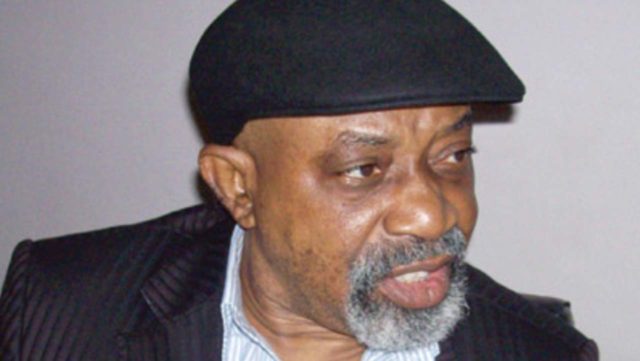The federal government said yesterday it was looking into the report that was recently submitted by the committee on renegotiation of the 2009 FG-ASUU agreement.
The government also accused the Academic Staff Union of Universities, ASUU, of breaching labour laws by extending the ongoing strike for another three months.
It equally pleaded with the university teachers to call off the ongoing indefinite strike and resume work while it continues to address their demands.
The Minister of Labour and Employment Senator Chris Ngige, while reacting to the union’s extension of strike by 12 weeks, said the Ministry of Education had already written him to submit the interim report of the Prof. Mimi Brigg- led renegotiation committee and that they are working on the interim report.
The Minister said as far as government was concerned, the demands of the lecturers are being addressed because discussion on the issues they raised is ongoing.
Although he noted that the role of the Labour ministry was only to conciliate, he said it was the duty of the union’s employer, the Ministry of Education, to implement decisions and agreements reached.
He said the lecturers were duty bound to respect that principle of allowing for the dispute to be settled under a peaceful atmosphere and not with force of strike.
Asked to comment on the new 12 weeks indefinite strike as declared by ASUU yesterday, Ngige said: “What I have to say is that it concerns us because it is a labour issue. But you know quite well where we are on the matter as a ministry.
”We are not the direct employers of ASUU, lecturers, whether they are in the university or Polytechnics or College of Education, we are not their direct employer in Federal Ministry of Labour and Employment.
“When they have issues with their employer in Ministry of Education, the Ministry of Education has an Industrial Dispute unit and to even help them, we have what is called a Labour Advisory Desk in Ministries of Education, Health, Office of Head of Service, Petroleum, Aviation, all the volatile ministries have labour desk.
“So the Labour Desk there advises them on how to handle such issues. But when they fail, the unions will write here and inform us. The process is that whenever ASUU has a problem with the Federal Ministry of Education, which is their direct employer, the ministry will have to try and resolve it using it’s internal dispute resolution mechanisms.
‘So when there is a breakdown in negotiations and I apprehend the dispute on my table and the workers refuse to go back to their work while discussions are on going, it is a breach of the labour law.
“Because I am an arbiter and I am a conciliator I put the employers on the right side and the employees on the left side here, that is how we have been doing it.
“We had apprehended ASUU strike, we did that on the 22nd of February, and we continued the conciliation on the 1st of March.”
Ngige said one of the agreements at the conciliatory meeting was that ASUU should go back to the Ministry of Education to sort out their disagreement.
He, however, said it was when such efforts failed that the matter will be brought to the Labour Ministry for conciliation.
He said the union would have to write the Labour Ministry to inform it that negotiations with it’s parent ministry had broken down and would proceed on industrial action.
Ngige said he had conciliated 1,683 labour disputes since he became minister and that the conciliations had been successful, adding that the Ministry of Labour had done a work plan on the implementation of their demands.
According to him, some of demands of the non academic staff and other categories of university workers overlap with that of ASUU and had to be addressed holistically.
He added that Labour Ministry had done it’s bit and was now waiting for the Ministry of Education and Income, Salaries and wages Commission to finish their own and come back.
He appealed to ASUU that the fact that things were being done meant they should go back to work, while discussions were on.
He said in considering possible salary increase, government had to juxtapose it with the present economic realities.
As the conciliator of the labour dispute between the Federal Government and the unions, Ngige also urged the government side to expedite action on the renegotiation of the Conditions of Service of the university workers.
He said: “I have appealed to SSANU, NASU, and NAAT to get back and open the universities so that when ASUU members come back, they will see a place to work. That is the situation now. In the Ministry of Labour and Employment, we are conciliators and arbitrators.
“Those on strike are not our workers. Their direct employers are the University and the Federal Ministry of Education. Any further queries on the ASUU strike should go to the Federal Ministry of Education and if possible, the National Universities Commission, NUC, who are their direct employers. ”We are here to conciliate them whenever either the employers or employees report to us that there is a breakdown in negotiations.”
